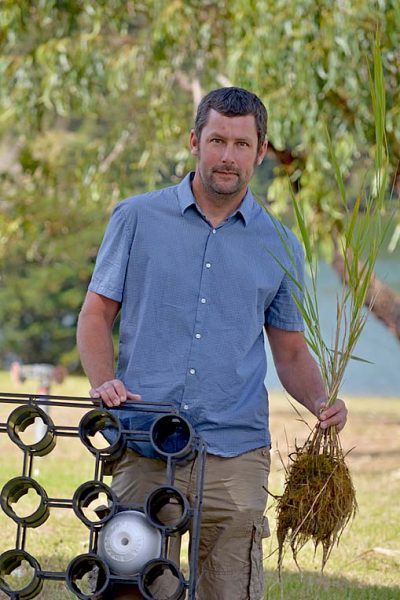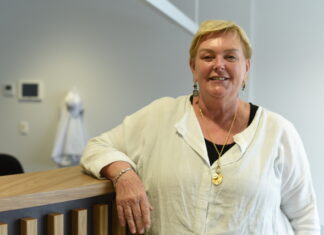
A NEW floating reed bed is set to be trialled in south-west Victoria to reduce the amount of wastewater nutrients being discharged into inland waterways.
The $20,000 pilot project, which is being funded through Deakin University’s industry partnership program with Wannon Water, will be conducted by aquatic lecturer Dr Tim Tutt in Heywood over the next 12 months.
Dr Tutt said the floating reed bed, also known as floating wetland, was easy to assemble and a potentially more financially viable way of reducing nutrient load in wastewater discharging to waterways.
“There are other products on the market dedicated to this idea, but this low-tech method with off-the-shelf products could potentially significantly reduce costs,” he said.
“Wetlands and reeds are like nature’s water treatment systems.”
Wannon Water’s operations branch manger Wayne Murdoch said the corporation was excited about the trial and the alliance with Deakin University.
“This is a novel approach to a challenging issue around nutrient removal in wastewater effluent,” he said.
The 12-month trial will start early this year at Heywood’s lagoon-based wastewater treatment plant.
Six 20,000 litre rainwater tanks will be used to scientifically assess the performance of the floating reed beds, three tanks will have the reed beds and three will be controls with no reeds.
Dr Tutt said the trials would determine if the system improves water quality and meets operational needs as an economical and sustainable treatment option.
“Additionally, there might be other applications down the track such as improving recreational fishing by providing habitats and restoring ecological diversity in waterways,” he said.
While saying there is no “silver bullet” for blue-green algae, Dr Tutt hopes that floating reed beds could help in restoring proper nutrient balance in inland waterways and reduce the instances of algal blooms.







